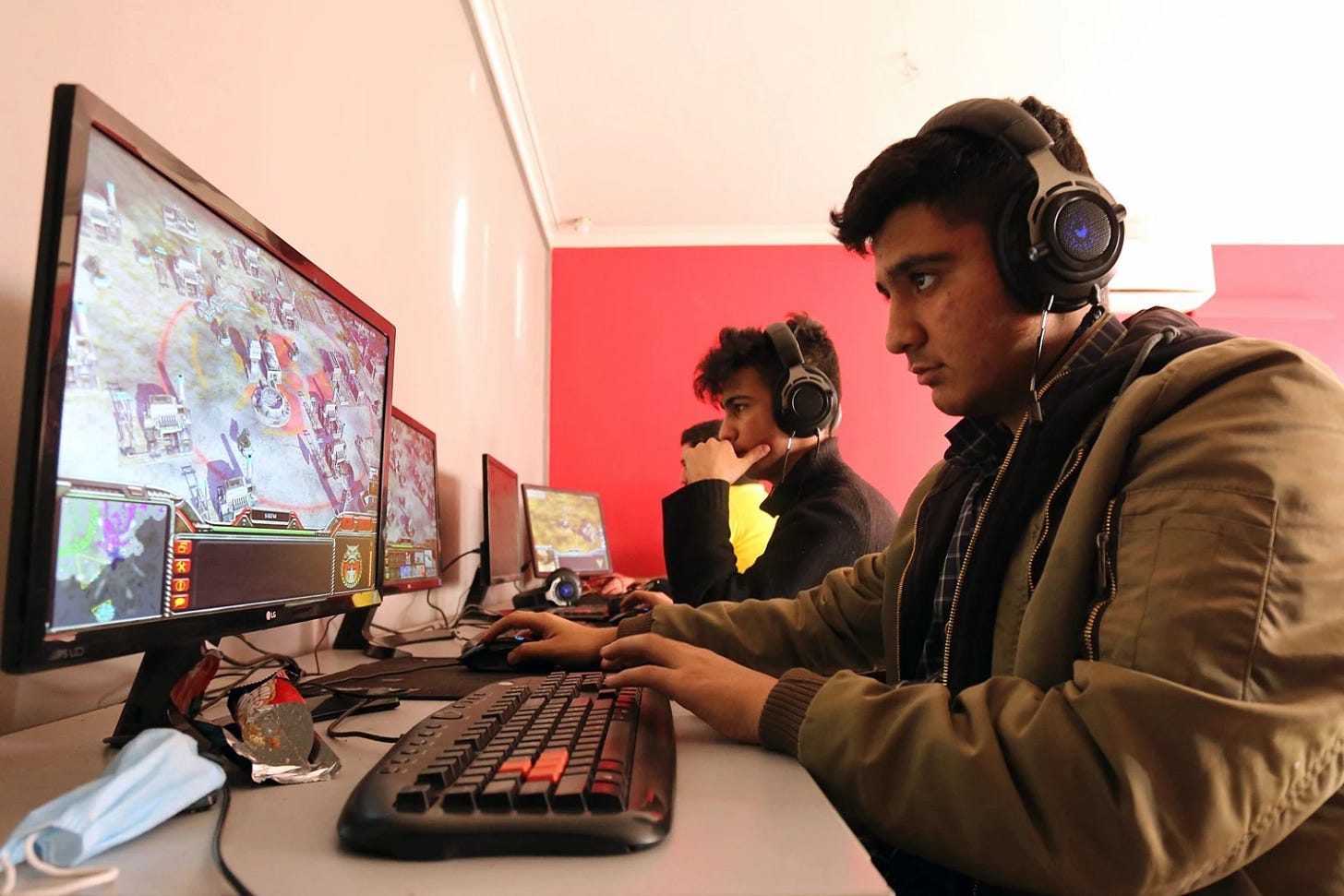Why Authoritarians Hate the Internet
The moment empowered citizens realize the potential for a better future, the authoritarians have already lost. With internet access, they are one step closer to self-determination and freedom.
Where I grew up, more books were banned than were read. For those of you who don't know by now, I spent the beginning of my life living under the Kim Jong Un equivalent of the Middle East, Mr. Saddam Hussein. The first Gulf War and the 1991 uprising rendered him one of the most paranoid men in history, which was demonstrated by his imposing of severe penalties for those found guilty of "journalistic and media crimes."
Those penalties included, but were certainly not limited to, life imprisonment and/or confiscation of personal wealth. If one's defamation was thought to incite public opinion against the ruling authorities, the death penalty was on the table. Defaming the President of the Republic, the Revolutionary Command Council, the Ba'ath Party, the parliament, and the government was considered a heinous crime. Under Saddam’s rule, the following policies were put into place in Iraq:
All licensed newspapers and magazines were owned by the Party and the state.
The list of banned books and magazines was far longer than the list of those permitted.
No worker could remain in the media or culture without the authorities' express agreement. This came with the condition that they declare loyalty to the Party and Saddam.
Writers, media workers, journalists, and authors who refused to declare their loyalty were forced to leave the country and live in exile.
It was forbidden to use the official media ecosystem to express an opposing or differing opinion from what was condoned by the state.
You might be wondering, without the modern technical surveillance we have today, how would the state know if you were reading a banned book or the wrong newspaper? It was believed that one out of four adults in Iraq were members of the Iraqi Intelligence Services, otherwise known as the Mukhabarat. This meant that every one out of four people you knew could report you to the authorities, and you might never be seen again. Family would report family, friends would report friends. It happened frequently.
Even more horrific than the prospect of being arrested is what this level of surveillance does to one's psyche. After the regime was deposed in 2003, one of my former classmates told me that his parents divorced because they suspected each other of secretly being in the Intelligence Services. I didn't ask if that was the only reason they got divorced, but it definitely played a significant role in ending their marriage— even if the cooking or the sex was also subpar. Authoritarianism infects not only the entire society but worms its way into your head and wreaks havoc on your personal life. Living under censorious authoritarians is not conducive to a healthy society or a happy marriage.
As the technology in Iraq became more advanced, two new opportunities surfaced. Satellite TV and radio started being broadcasted into Iraq from outside the country's borders. While the penalties were high for engaging with either, curious people always figured out a way to get the information. To them, it was worth the risk. My own parents were too afraid to own a satellite TV, but our close family friends had one they were hiding on their rooftop. I remember fondly the days when my dad and I used to stay awake listening to Monte Carlo and Radio Sawa, which required frequencies that only worked late at night when the signal was good.
The internet came to Iraq in 1999 through one state-owned company called "URUKLINK." There was also the "Intranet," through which you could only access local websites. Before this, in '97, when internet access was banned for Iraqi citizens, Saddam created his first webpage in an attempt to get birthday wishes. We saw a similar scenario play out in modern-day Iran just last year, as the nation’s supreme leader Ali Khamenei banned Iranian citizens from using Twitter but continued to use the social media platform himself. Khamenei is no fool. We have seen social media's power in galvanizing support for the Iranian Revolution, and so has he. The only way for Iranians to remain connected to the world and connected to each other is to provide them with censorship-resistant applications like VPNs or internet access through Starlink in case of a government-ordered internet shutdown. Masih Alinejad, a fearless journalist and well-known activist, famously said her camera is her weapon, and she was right. Will this revolution be the end of the Islamic Republic? If it is, it will be because of two things: brave Iranians and the internet.
In 2003, the neighborhood in Baghdad where I grew up was the first to get internet access after the removal of Saddam. Slowly but surely, internet usage became commonplace and it remains a source of information for many Iraqis today. In particular, the youth are able to learn about different perspectives they aren’t being taught about in school or being given a glimpse of in their day-to-day lives. There is no better lesson in what it's like to live under a theocracy than living under ISIS. The ideas and perspectives they have access to solely on the internet are the best tools they have to fight back against rising extremism, opening their minds to the many possibilities that exist in a free society.
Herein lies the reason authoritarians hate the internet: citizens who oppose tyranny, theocracy, and brutality can broadcast corrupt regimes’ crimes against humanity to the world, ask the international community for help, and learn how to effectively fight back against the subjugation of their human rights. They know that when the international community clearly sees the horrific acts of violence perpetrated against innocent civilians, corrupt regime officials can no longer cloak their crimes in lies. The moment empowered citizens realize the potential for a better future, the authoritarians have already lost.
When crafting Middle Eastern foreign policy positions, we in the West often instinctively reach for the tools we’re accustomed to wielding: military interventionism and boots on the ground. Moving forward, we need to think smaller to accomplish bigger things. Providing internet access and making information that is untainted by propaganda accessible to the masses are the best means we have to create lasting change from within the region. The youth are the future of the Middle East. An internet router can be smuggled in a suitcase, and it's much cheaper than the billions of dollars of military efforts which yield few, if any, meaningful and lasting results. As people across the Middle East continue to gain access to information that gives them hope for a better future, the least we can do is give them the tools they need to continue their fight for the values that we in the West take for granted.





Authoritarians hate the truth.
The internet helps, but some of us in the USA are aware that the leanings of the current anti-democratic brand of Republicans like recent newcomers Marge T. Green, Lauren Boebert, and of course the current champion of lies topped off with bigger lies, George Santos, are in no way interested in the truth. It's the one thing that proves their brand of politics is toxic for democracy and puts them under scrutiny.
Accurate information on these fools will only be effective if there are enough reasonable people, and I'm assuming there still is some in the GOP who are open to accepting the truth. I have some doubt.
So, if they have enough room in their tiny minds and revert to actually seeing and accepting the truth it will be one of the few things that can possibly save our republic.
However, I don't advise holding your breath waiting for some mass enlightenment by any of these mistakenly self-identified "truthers"...